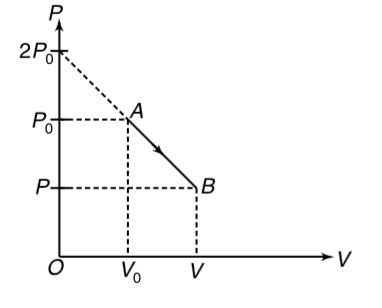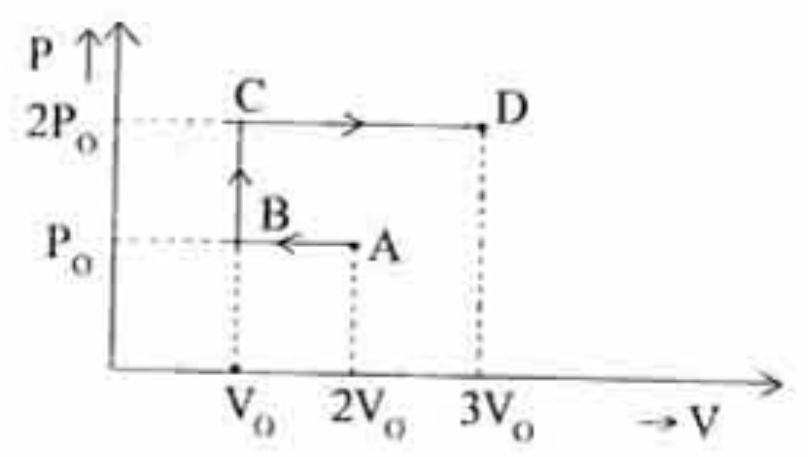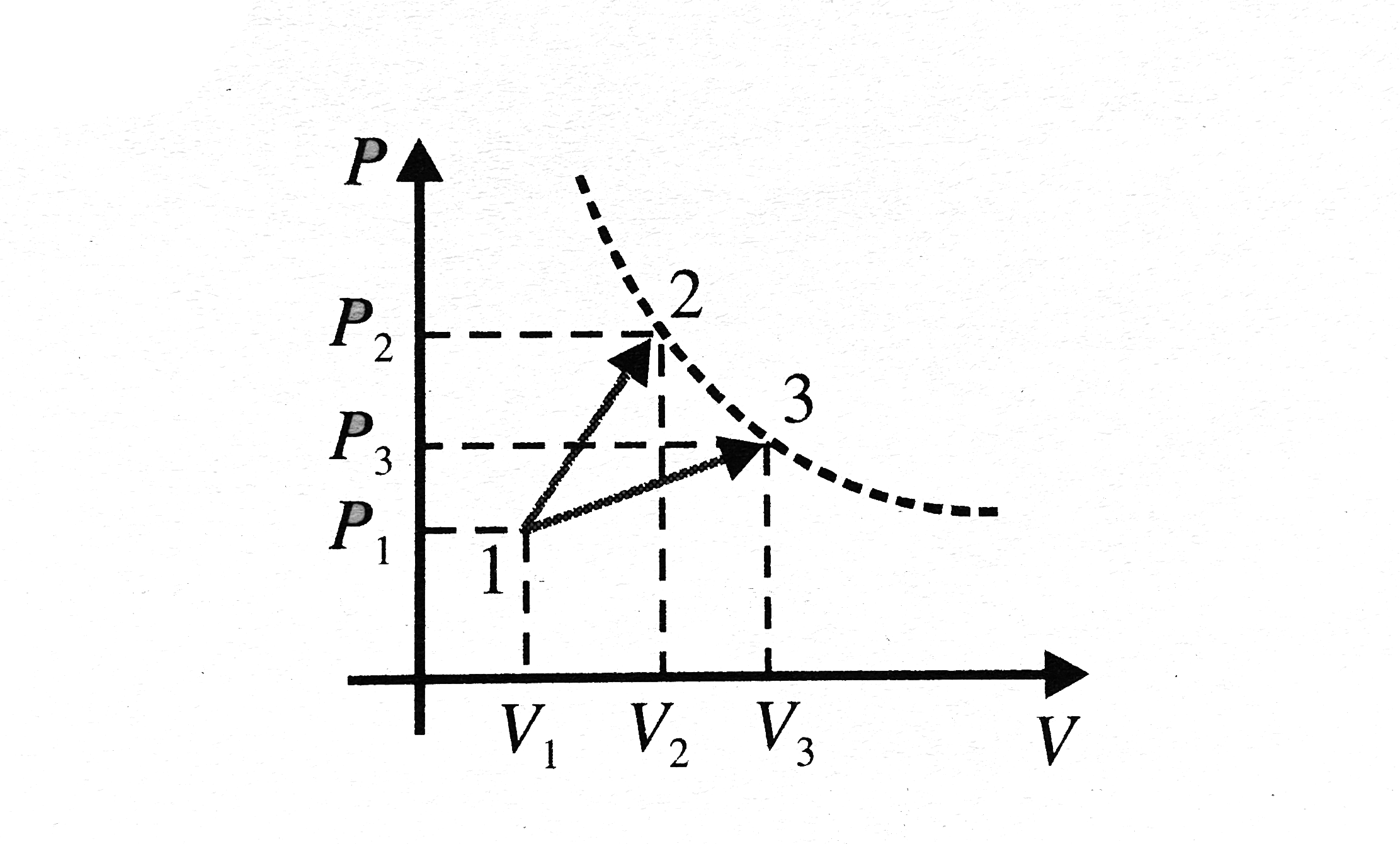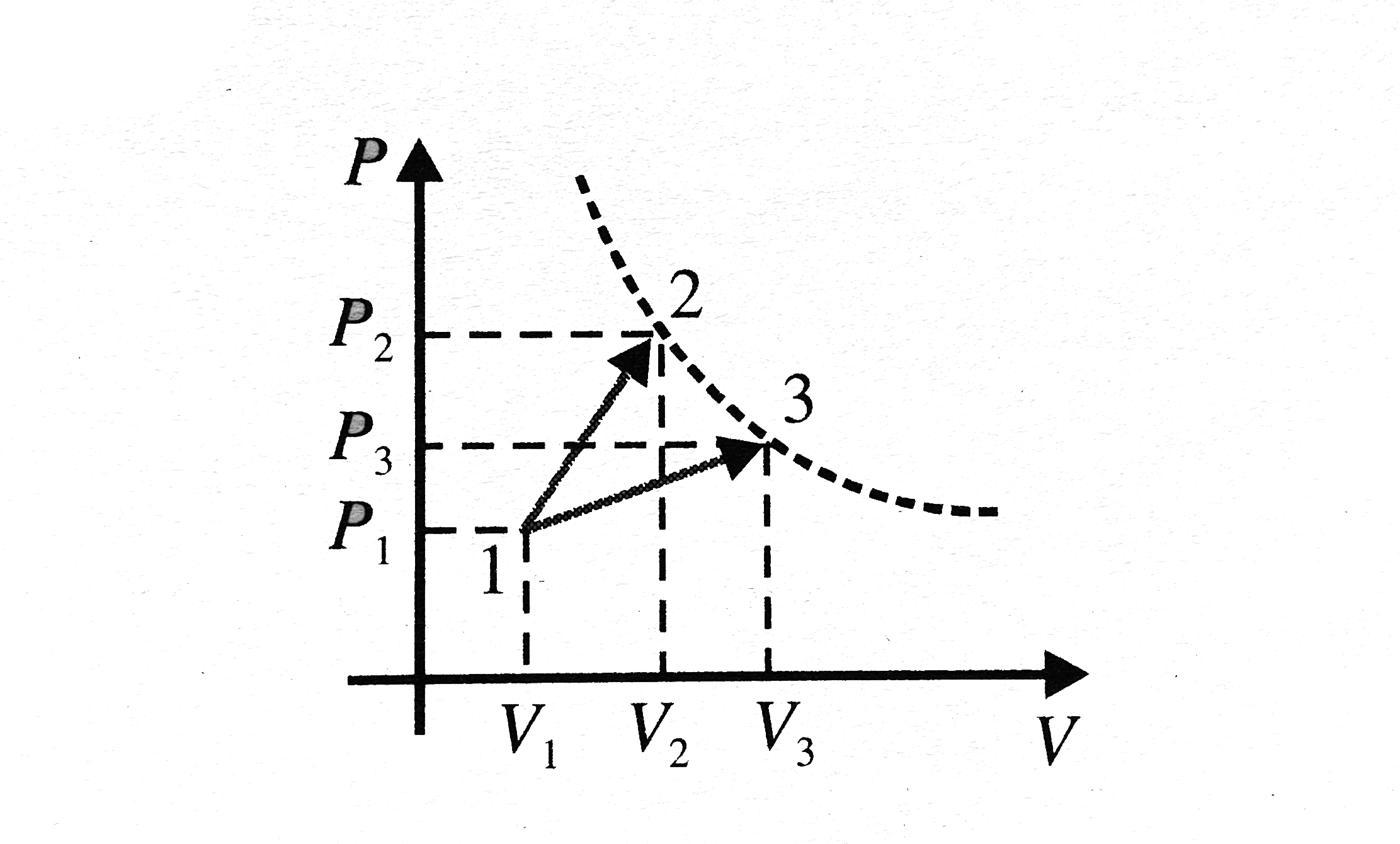A gas expands such that its initial and final temperature are equal . Also, the process followed by the gas traces a straight line on the P−V diagram:-
The temperature of the gas remains constant throughout.
The temperature of the gas first incresses and then decreases
The temperature of the gas first decreases and then increases
The stright line has a negative slope.
The correct Answer is:B, D
Temperature increases first then decreases slope
Topper's Solved these Questions
- KINETIC THEORY OF GASESBOOK - BANSALCHAPTER - KINETIC THEORY OF GASESEXERCISE - Matrix Type
2 Videos
- KINETIC THEORY OF GASESBOOK - BANSALCHAPTER - KINETIC THEORY OF GASESEXERCISE - Exercise-3
33 Videos
- KINETIC THEORY OF GASESBOOK - BANSALCHAPTER - KINETIC THEORY OF GASESEXERCISE - Reasoning Type
1 Video
- HEAT TRANSFERBOOK - BANSALCHAPTER - HEAT TRANSFEREXERCISE - Exercise
89 Videos
- UNIT DIMENSION, VECTOR & BASIC MATHSBOOK - BANSALCHAPTER - UNIT DIMENSION, VECTOR & BASIC MATHSEXERCISE - Exercise
10 Videos
Similar Questions
One mole of an ideal gas is expanded from the state A(P0,V0) to final state B having volume V. The process follows a path represented by a straight line on the P–V diagram (see figure). Up to what volume (V) the gas shall be expanded so that final temperature is half the maximum temperature during the process.

View SolutionThe work done by the gas in the process shown in given P-V diagram is

View Solution
Knowledge Check
A gas expands such that its initial and final temperature are equal . Also, the process followed by the gas traces a straight line on the P−V diagram:-
A(i),(ii)B(ii),(iii)C(iii),(iv)D(i),(iv)A gas take part in two thermal processes in which it is heated from the same initial state to the same final temperature. The processes are shown on the P−V diagram by straight lines 1→3 and 1→2
 AQ13<Q12BQ13>Q12CQ13=Q12DNone of above
AQ13<Q12BQ13>Q12CQ13=Q12DNone of aboveA gas take part in two thermal processes in which it is heated from the same initial state to the same final temperature. The processes are shown on the P−V diagram by straight lines 1→3 and 1→2
 AW13>W12BW12>W13CW13=W12DNone of above
AW13>W12BW12>W13CW13=W12DNone of above
A quantity of an ideal monoatomic gas consists of n moles initially at temperature T1 ,The pressure and volume are then slowly doubled in such a manner so as to trace out a straight line on a P-V diagram.For this process,the ratio WnRT1 is equal to (where W is work done by the gas):
View SolutionAn ideal mono atomic gas is at temperature T0. The pressure and volume are quasi-statically doubled such that the process traces a straight line on the PV diagram.
(a) Calculate the heat absorbed by the gas in the process if number of moles of the gas in the sample is n.
(b) Calculate the average molar specific heat capacity of the gas for the process.
View SolutionAn ideal gas is expanded adiabatically at an initial temperature of 300 K so that its volume is doubled. The final temperature of the hydrogen gas is λ=1.40)
View SolutionOne mole of ideal gas is allowed to expand reversibly and adiabatically from a temperature of 27∘C. If the work done by the gas in the process is 3 kJ, the final temperature will be equal to (Cv=20J/Kmol)
View SolutionOne mole of ideal gas is allowed to expand reversibly and adiabatically from a temperature of 27∘C. If the work done by the gas in the process is 3 kJ, the final temperature will be equal to (Cv=20J/Kmol)
View Solution